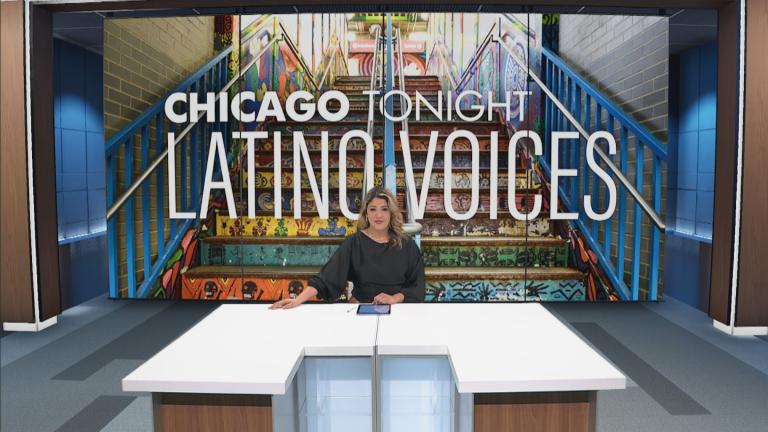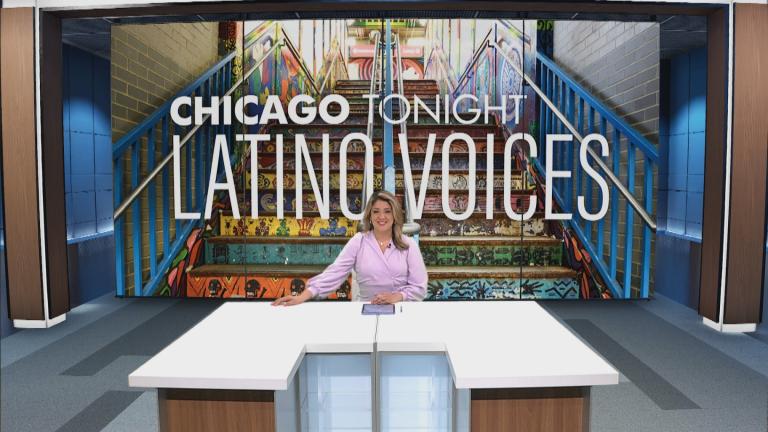For those fortunate enough to reach an advanced age, existing inequities can magnify the challenges that come with aging — access to social services, health care and broken social connections.
But for Latino seniors, issues of language access, health inequities, lower incomes and documentation status can make the daily business of living even more complicated.
The activist organization Health and Medicine Policy Research Group has started a campaign called Illinois Aging Together that aims to develop a strategic action plan for aging in the Prairie State.
Sandy Pastore, the health and aging policy organizer for the Health and Medicine Policy Research Group, says it is long past time for our society to rethink how it perceives the aging process.
“We want to reframe it in a positive framework,” said Pastore. “We know many older adults as they grow older find that … they underestimated the older years. And so we want to make sure people understand that it’s a good thing to age.”
Illinois state Rep. Barbara Hernandez is partnering with Illinois Aging Together to address aging equity and is hosting a social justice meeting on the topic on Jan. 24. Hernandez says that among the older Latinos she serves, the cost of health care is a primary concern.
“Families don’t have health insurance, have not had health insurance for pretty much all their life here in the United States, it’s very hard for them to even try to get medications, to find services, resources or even know what’s available to them when it comes to their health concerns,” she said. “That’s why we were able to pass a bill in the state budget that allows [members of] undocumented families from [ages] 55 and over to receive Medicaid. And now for the first time ever, families are actually receiving health care.”
Hernandez points to her own family to illustrate how reluctance to admit health care problems and other cultural barriers can keep older adults from getting the care they need.
“I have a grandma back in Mexico that currently is dealing with dementia. And unfortunately, I can see that difference between my family, that instead of saying, ‘hey, your grandmother has dementia’ they keep saying, ‘oh, she’s forgetting a few things, it’s the age.’ And that’s not what it is,” Hernandez said. “We need to be able to acknowledge what the doctors say, and that it is dementia, and be able to find ways to help our family members who are caretakers as well. There are a lot of different things that we need to do in the Latino community to be able to face those barriers, but we need to talk about them.”
While cost of living is frequently cited as a reason for older adults’ financial woes, Pastore says that in both rural and urban areas, mobility and health care access are limited for seniors in different ways.
“We found that in the urban areas and the rural areas, there are some of the same things that are coming up, like transportation, health care issues, access to grocery stores, and all kinds of things that improve quality of life,” Pastore said. “While we might think of urban areas as more costly and housing as more costly, it in fact is almost about the same when you look at the numbers because the cost of health insurance rises in the rural areas due to … lack of density of population.”
While Illinois Aging Together works on its policy recommendations, Pastore says there are resources available in Illinois for older adults and their families.
“There are 13 regional area agencies on aging that fund all kinds of caregiver services like nutrition, congregate meals, home delivered meals, caregiver support and things like that. And then there’s also programs through the Illinois Department on Aging … that help provide homemaker services, adult day services, automatic medication dispensers and alert emergency home alert systems.”
Hernandez is partnering with Illinois Aging Together to host a virtual social justice meeting on aging equity on Jan. 24. Details are available here: bit.ly/januarysjm








